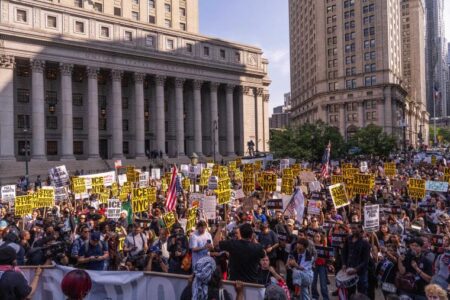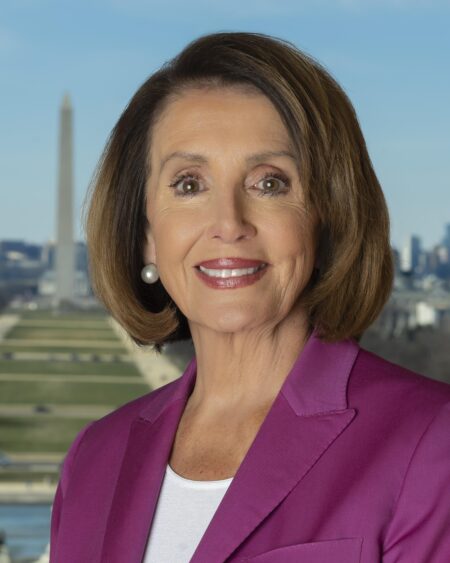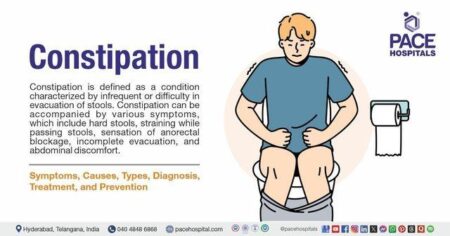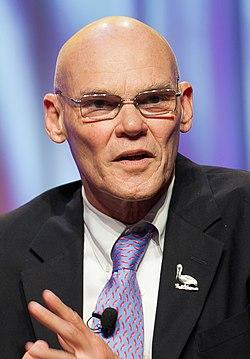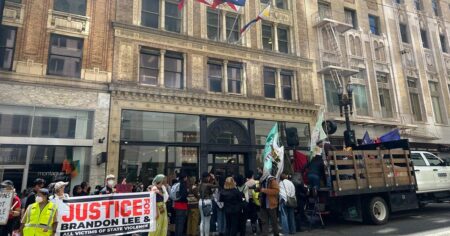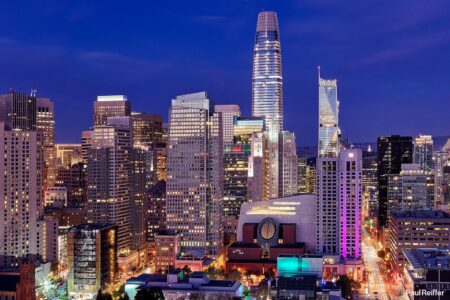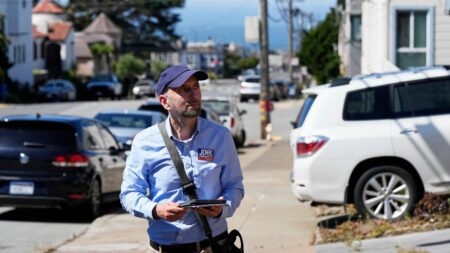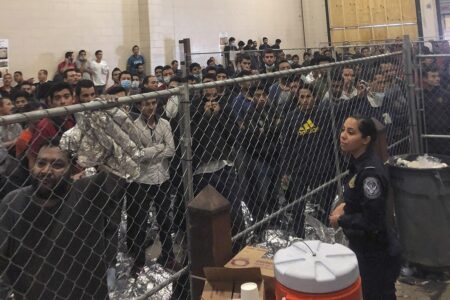The DOJ has announced an investigation into protests outside a Turning Point USA event at UC Berkeley. Officials are examining potential violations amid clashes between demonstrators and attendees, sources say.
Browsing: Politics
Speaker Nancy Pelosi warned that California police may arrest federal agents who violate state laws, highlighting growing tensions over law enforcement authority amid disputes on immigration and policing.
PHOTOS: Protests against immigration raids have spread nationwide, with thousands demonstrating in cities across the U.S. Activists demand fair treatment and an end to aggressive enforcement tactics.
San Francisco Fleet Week organizers are preparing contingency plans amid fears of a federal shutdown. The annual event, celebrating military service, could face funding delays impacting schedules and participation.
U.S. Speaker Nancy Pelosi, aged 83, faces growing retirement speculation amid Democratic Party shifts. With leaders like Saikat Chakrabarti rising, questions mount on who might succeed her in Congress.
President Trump has signed an executive order aiming to eliminate the Presidio Trust, labeling the San Francisco agency “unnecessary.” The move targets the federal body managing the historic parkland.
The federal government has formally requested the San Francisco Sheriff’s Office to provide a list of undocumented immigrants currently held in local jails, intensifying tensions over immigration enforcement in the city.
Hundreds of flights at San Francisco International Airport experienced delays, but officials clarify the disruptions were not due to the federal government shutdown. Technical issues and weather were cited as primary causes.
Nancy Pelosi’s retirement opens the door to a competitive race in her influential San Francisco district. The departure of the long-time House Speaker sets the stage for a high-stakes political battle.
Elon Musk urges former President Trump to deploy U.S. troops to San Francisco, calling military intervention the ‚Äúonly solution‚ÄĚ in the escalating war on drugs. The controversial proposal sparks intense debate nationwide.
A former San Francisco political consultant was sentenced to six months in jail following charges related to child pornography, CBS News reports. The case highlights ongoing efforts to combat child exploitation.
Passengers on a San Francisco to Washington, DC flight united in singing the national anthem and chanting “USA,” showcasing patriotism mid-air. The spirited moment was captured on ABC7 Los Angeles.
San Francisco Fleet Week organizers confirm the airshow will proceed despite the government shutdown, implementing changes to ensure safety and continuity, officials announced. The event remains a key Bay Area attraction.
The U.S. government holds a vast collection of UFO records that remain unreleased. Advocates urge transparency, arguing public access could shed light on unknown aerial phenomena. The San Francisco Chronicle calls for their disclosure.
Military tests once used SF fog to simulate germ-warfare attacks, unknowingly exposing 800,000 San Francisco residents to potentially harmful bacteria, CBS News reports. The revelation raises concerns over public safety and government transparency.
Protesters gathered outside the Philippine consulate in San Francisco to denounce President Marcos Jr.’s administration, citing concerns over governance and human rights, CBS News reports.
San Francisco has won a crucial legal reprieve in a high-profile case, temporarily halting state intervention. The decision marks a significant moment in the ongoing battle over local autonomy and governance.
San Francisco politician faces recall following public backlash over the Great Highway closure. Critics argue the shutdown disrupted traffic and local businesses, fueling a heated political debate in the city.
ICE detained a British Muslim political commentator at San Francisco airport, raising concerns over immigration enforcement and civil liberties. The incident has sparked calls for transparency and accountability.
A landmark water dispute before the Supreme Court has sparked unusual alliances between rival states and environmental groups, highlighting the high stakes of resource management in an era of climate stress.



